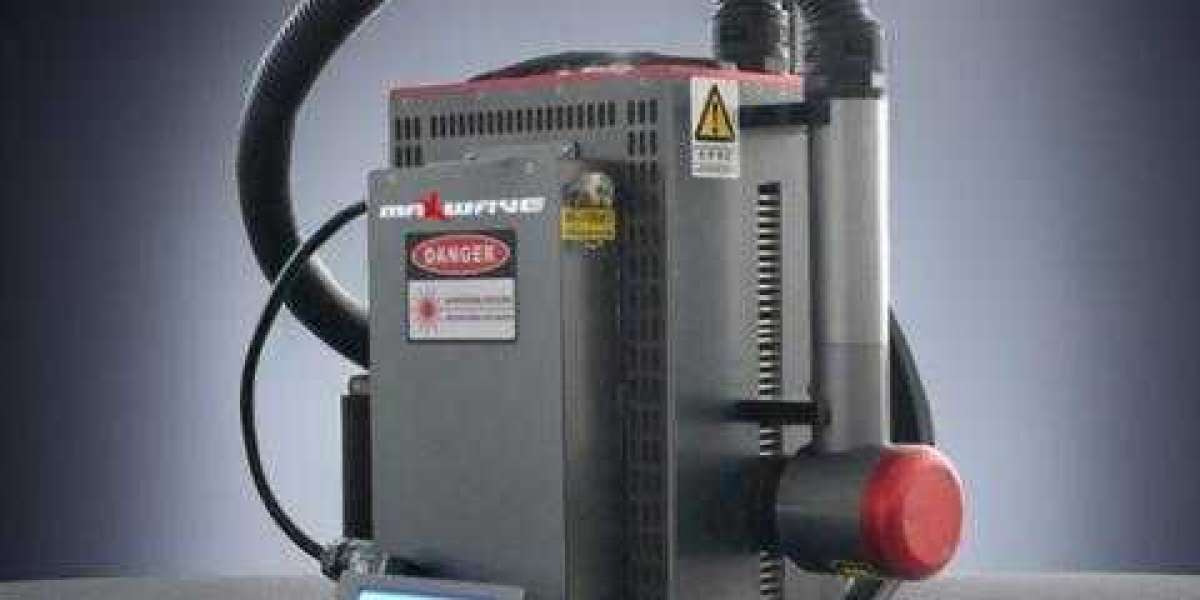In an era where efficiency and sustainability are paramount, laser cleaning machines have emerged as a transformative solution for removing contaminants, rust, and paint from various surfaces. LASERCLEANER is at the forefront of this technology, providing advanced laser cleaning solutions that combine precision and eco-friendliness. This article explores the mechanics, benefits, and applications of laser cleaning machines, showcasing how LASERCLEANER is changing the landscape of surface cleaning.
What is a Laser Cleaning Machine?
A laser cleaning machine uses concentrated laser beams to remove unwanted materials from surfaces, such as rust, paint, oil, and dirt. The process involves directing a high-energy laser beam at the target surface, where the energy is absorbed by the contaminants, causing them to vaporize or be ejected without damaging the underlying material. This method offers significant advantages over traditional cleaning techniques, such as chemical stripping or abrasive blasting.
How Laser Cleaning Works
The operation of a laser cleaning machine is based on the principles of photothermal and photochemical interactions.
Photothermal Effect: When the laser beam hits the surface, the contaminants absorb the laser energy and rapidly heat up. This rapid heating causes the rust or paint to expand and crack, allowing it to be easily removed from the surface.
Photochemical Effect: In some cases, the laser can induce chemical reactions that facilitate the removal of certain types of contaminants. This is particularly useful for stubborn substances that are resistant to other cleaning methods.
Benefits of Laser Cleaning Machines
Eco-Friendly: Unlike traditional methods that often rely on harsh chemicals and solvents, laser cleaning machines use only light energy, making them a sustainable choice. This eco-friendly approach minimizes environmental impact and eliminates the need for hazardous waste disposal.
Precision and Control: Laser cleaning machines provide exceptional precision, allowing operators to target specific areas without affecting the underlying material. This is especially beneficial in applications where maintaining the integrity of the substrate is critical.
Efficiency: The speed of laser cleaning can significantly reduce downtime in industrial settings. LASERCLEANER’s machines are designed for rapid operation, making them ideal for high-volume cleaning tasks.
Cost-Effective: While the initial investment in laser cleaning technology may be higher than traditional methods, the long-term savings in labor costs, material usage, and waste disposal can make laser cleaning a more economical option over time.
Versatility: Laser cleaning machines can be used on a variety of materials, including metals, plastics, and ceramics. This versatility makes them suitable for a wide range of applications across different industries.
Applications of Laser Cleaning Machines
Industrial Manufacturing: In manufacturing environments, laser cleaning machines are used to prepare surfaces for welding or painting by removing rust, oil, and other contaminants. This ensures optimal adhesion and improves the overall quality of the finished product.
Automotive Industry: LASERCLEANER’s machines are widely used in the automotive sector for cleaning components such as engines, chassis, and body parts. The precision of laser cleaning allows for thorough cleaning without damaging sensitive parts.
Art and Restoration: Laser cleaning is gaining popularity in art restoration and preservation, where delicate surfaces require careful treatment. This method effectively removes layers of dirt and grime from historical artifacts and artworks without causing harm.
Construction and Maintenance: Laser cleaning machines are effective for maintaining infrastructure by removing rust from steel beams and other structural components. This prolongs the lifespan of materials and ensures safety in construction environments.
Shipbuilding and Marine Applications: In shipbuilding, laser cleaning is used to prepare surfaces for painting and coating, enhancing the durability and appearance of marine vessels. The ability to remove old paint and rust efficiently is crucial in this industry.
Choosing the Right Laser Cleaning Machine from LASERCLEANER
Quality Assurance: LASERCLEANER is committed to delivering high-quality laser cleaning machines that meet rigorous industry standards. Each machine undergoes thorough testing to ensure performance and durability.
Customization Options: Understanding that different applications require unique solutions, LASERCLEANER offers customizable machines tailored to specific needs. This includes adjustable power settings, different laser wavelengths, and various operational modes.
Expert Support: With a team of experienced professionals, LASERCLEANER provides expert guidance on selecting and operating laser cleaning machines. Their support ensures customers can maximize the performance of their equipment for optimal results.
Future Trends in Laser Cleaning Technology
As technology advances, laser cleaning machines are expected to become even more efficient and versatile. Innovations in laser sources and beam delivery systems will enhance cleaning speed and effectiveness. Furthermore, the integration of smart technologies will allow for automated operation and real-time monitoring, making laser cleaning an even more attractive option for industries worldwide.
Conclusion
Laser cleaning machines represent a significant advancement in surface cleaning technology, offering numerous benefits over traditional methods. LASERCLEANER’s commitment to quality, innovation, and customer support positions it as a leader in this field. By understanding the capabilities and applications of laser cleaning machines, businesses can make informed decisions that enhance their cleaning processes, improve efficiency, and promote sustainability.







